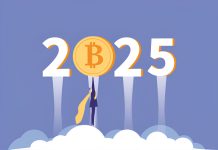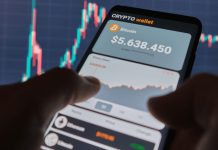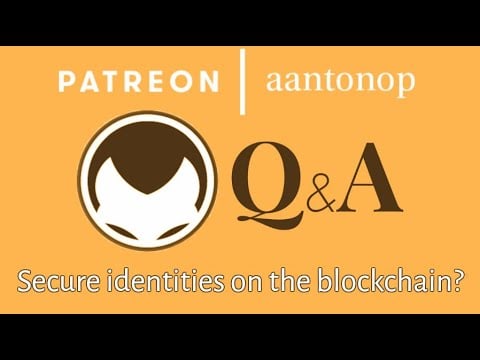Can we have secure identities on the blockchain? How would blockchain identities serve the surveillance system? Why do KYC policies by centralised entities not actually work against fraud risk? Being identified doesn’t make you good, but it does lead to economic exclusion. Authorities will keep asking for more and more power.
Note: To be clear, this video is not about being against decentralized identities in general. It is mostly about taking a stance against applying KYC policies to these networks in a way that is opposed to anonymity and privacy, especially as a storage mechanism for sensitive information, which was the scope of the question.
These questions are from the MOOC 10.6 session, which took place on October 11th 2018. If you want early-access to talks and a chance to participate in the monthly live Q&As with Andreas, become a patron: https://www.patreon.com/aantonop
For more on decentralized identity, see: “Let’s Talk Bitcoin! #386 Decentralized Identity and Pairwise Identifiers” – https://letstalkbitcoin.com/blog/post/lets-talk-bitcoin-386-decentralized-identify-and-granular-identifiers
RELATED:
Escaping the Global Banking Cartel – https://youtu.be/LgI0liAee4s
Worse Than Useless: Financial Surveillance – https://youtu.be/n4F-h4xuXMk
Fungibility, privacy, anonymity – https://youtu.be/y3s8c7YDtXU
Mixing services – https://youtu.be/rKoMvOH4zoY
Altcoins and specialisation – https://youtu.be/b_Yhr8h6xnA
Governments and privacy coins – https://youtu.be/30sjEW70rLE
The price of losing privacy – https://youtu.be/2G8IgiLbT_4
The war on cash and crypto – https://youtu.be/BAlRKfvBnvw
MimbleWimble and Schnorr signatures – https://youtu.be/qloq75ekxv0
MimbleWimble and Dandelion – https://youtu.be/LjDJGTpK_lE
Schnorr signatures and the privacy roadmap – https://youtu.be/JeJzwZgxF50
What are Bulletproofs? – https://youtu.be/EDaM8A-tAck
Coin selection and privacy – https://youtu.be/3Ck683CQGAQ
Atomic swaps – https://youtu.be/fNFBA2UmUmg
Decentralised exchanges with fiat – https://youtu.be/3Url8tbQEkA
Decentralised exchanges and counterparty risk – https://youtu.be/hi_jaw0dT9M
The Lightning Network – https://www.youtube.com/playlist?list=PLPQwGV1aLnTurL4wU_y3jOhBi9rrpsYyi
How do I choose a wallet? – https://youtu.be/tN6b62sEpsY
Hot vs. cold wallets – https://youtu.be/Aji_E9sw0AE
Secure, tiered storage system – https://youtu.be/uYIVuZgN95M
How do I secure my bitcoin? – https://youtu.be/vt-zXEsJ61U
HODLing and the “get free” scheme – https://youtu.be/MhOwmsW1YNI
How to get people to care about security – https://youtu.be/Ji1lS9NMz1E
Airdrop coins and privacy implications – https://youtu.be/JHRnqJJ0rhc
Bitcoin as everyday currency – https://youtu.be/xYvvSV4mjH0
Andreas M. Antonopoulos is a technologist and serial entrepreneur who has become one of the most well-known and respected figures in bitcoin.
Follow on Twitter: @aantonop https://twitter.com/aantonop
Website: https://antonopoulos.com/
He is the author of two books: “Mastering Bitcoin,” published by O’Reilly Media and considered the best technical guide to bitcoin; “The Internet of Money,” a book about why bitcoin matters.
Subscribe to the channel to learn more about Bitcoin & open blockchains; click on the red bell to enable notifications about new videos!
MASTERING BITCOIN, 2nd Edition: https://amzn.to/2xcdsY9
Translations of MASTERING BITCOIN: https://bitcoinbook.info/translations-of-mastering-bitcoin/
THE INTERNET OF MONEY, v1: https://amzn.to/2ykmXFs
THE INTERNET OF MONEY, v2: https://amzn.to/2IIG5BJ
Translations of THE INTERNET OF MONEY:
Spanish, ‘Internet del Dinero’ (v1) – https://amzn.to/2yoaTTq
French, ‘L’internet de l’argent’ (v1) – https://www.amazon.fr/Linternet-largent-Andreas-M-Antonopoulos/dp/2856083390
Russian, ‘Интернет денег’ (v1) – https://www.olbuss.ru/catalog/ekonomika-i-biznes/korporativnye-finansy-bankovskoe-delo/internet-deneg
Vietnamese, ‘Internet Của Tiền Tệ’ (v1) – https://alphabooks.vn/khi-tien-len-mang
MASTERING ETHEREUM (Q4): https://amzn.to/2xdxmlK
Music: “Unbounded” by Orfan (https://www.facebook.com/Orfan/)
Outro Graphics: Phneep (http://www.phneep.com/)
Outro Art: Rock Barcellos (http://www.rockincomics.com.br/)
source















Now you all know why Facebook wants to create and secure everyone's identity and information into their private blockchain …… shudder!
First time I don't agree. Identity is required to allow people to vote not to elect masters but to vote their own laws as French yellow vests are setting up.
Without ID how would you extend credit to individuals? It is my understanding that banks were created during the Renaissance in part to finance (provide credit) for large investments and purchases e.g. trade lines, houses, ships, inventories, etc.
Thanks!
Smashed the like
We were all born with an ID, your face. So in any face to face meetings all parties are identifiable.
Governments started issuing birth certificates with the story they need the information to plan for the future, schools, hospitals etc. But they lied, they didn't just use it as unit of measurement. They created an organisation with the same sounding name as yours but written in symbols, the ALL CAPITALISED NAME and unbeknown to you they made thou the agent for it. You are the agent for service of process for all liabilities and benefits pertaining to the ALL CAPS organisation. The organisation must comply with all government legislation and you duty as agent is to ensure that it does. If it doesn't you will be held accountable (as surity) in court for contempt of whatever charge is brought against the ALL CAPS organisation. If the court require you for any other purpose, they will mail the man/woman in lower caps, e.g. as a witness.
They want this level of legal power over all users of crypto currencies, that is they want the ALL CAPS organisation to be the responsible party and not the man / woman, thus making everybody compliment with legislation and fully accountable, especially for taxation purposes.
Anyone checked out lifeID? 🙂
Well said …brother!!…Merry Xmas…God Bless you.
What about reputation? I think in the future your reputation IS your ID, and blockchains will be a good tool to establish and maintain reputation. How would an ecommerce system like Amazon work if sellers had no reliable reputation? IMO a blockchain based economy needs a reputation system vastly more than "ID" unless it's a self-sovereign (non-gov) based ID. Would love to hear your thoughts on this… thanks Andreas!
greta video Andreas even sometimes im still strugle to get it all, was quite easy this time 🙂 . Ifollow you and other fellow you tubers almost a year, and to be honest everyone of you love to mention venezuela , with this direccion tirany ,dictatorship, inflation, well negatives jokes about whats happen in the moment there, somehow i have the intuition that somehow you guys only feed yourself with the mass media news and you did not did any deeper research, it feel that you are repeating like the parrow what tha mass media said, and to be honest its quite frustatring and sad to hear constantly that, especially cos i enjoy that content of you guys in eneral that way im subscribed, anyway here its a video very well explain of what happen right now invenezuela from a different angle ill apreciate if you watch t. Saludos. https://www.youtube.com/watch?v=e_iQebUPOmQ
Buy btc & hold your own private keys on January 3rd ??
Are you the guy who made the bot on telegram and want to give human touch to it. As you told in neblio telegram
Maybe some ID based on DNA could serve the purpose of identification.
What you think of UN id2020.org? Microsoft Accenture The Rockerfellers. 666 ?
The reality is we require ID for services and this isn’t going to change anytime soon. Our current identity is not very secure and is vulnerable, so with all that in mind I am not seeing too much downside for something that improves on what we have now.
Thank you Andreas, as always, for sharing your thoughts with the world. In your video you argue that ID on the blockchain is not a good idea, and you base it on your political convictions. While I fully agree with you, I can see how someone might disagree if they had different political views. However, I believe the issue of identity is fundamentally unsolvable in any kind of blockchain that is interesting. Traditionally ID is granted by a centralized governing body, and it is based on something you know (password) or something you have (key) or something you are (biometrics). If there is a blockchain that you first have to be allowed to use, then it is not permission-less or open, or censorship resistant. So it is not much different than a distributed database and shouldn't really be called a blockchain. And if there is a way to get a decentralized identity in a permission-less manner, then there is nothing to restrict you from getting ten different IDs or a hundred or a million. In fact you could argue that each private key on Bitcoin is an identity, but we don't consider it as such, simply because you can have many private keys, and therefore identities. I am very skeptical that ID can be done in open permission-less blockchains, even if we thought it was a good idea. It's not a technical limitation, but simply the fact that having an identity issuing body is incompatible with the main goal of building a blockchain in the first place, which is permission-less decentralization. Am I missing something? Is permission-less identity even possible?
true. i accept everything you said. you are genius
I appreciate your political commentary, Mr AA. However, at times, it gets too sarcaustic.
Many of the KYC and AML regulations were born out of the context of Sept 11th 2001. As far as history goes, The attacks on the Twin Towers are still the BIGGEST event of this 21st century… well before the GFC and the birth of Bitcoin!
ID checks are often needed in specific contexts (i.e receiving benefits, borrowing money, sitting examinations, travelling, etc.). I know of plenty of European countries (Itxxxx, Frxxxx, Dexxxxxxxxx) where virtually anyone can steal your Paper ID, go to their local town hall and re-invent themselves (literally), then obtain all sorts of benefits (housing allowance, health care, bank accounts, loans). Later on, the rightful owner of the documents goes to the tax office and finds out that s/he is liable for payment defaults/benefits abuse of all sorts.
So, EVEN with the current mandatory checks, fraud/identity theft STILL exists and is often targeting ordinary law-abiding people. Can blockchain help these people preserve their identity in a way that reinforces the PAPER ID? It is a possibility that ought to be considered, regardless of politricks and SeeSeeTVs… 🙂
Andreas for President!
He didn't answer the energy trading question 🙁
full support to this idea!!
Andreas Antonopoulos for president, Neil DeGrasse Tyson for VP, 2020.
Is there a project out there trying to provide an oracle that answers the question: "Am "I" an acredited investor, but without publically revealing who "I" is? Is that even theoretically possible?
Andreas, I agree with you 1000% on the issue of anonymous transactions. No buts at all… 😉
Andreas Antonopolous always talks about ideas that 100% matches Monero. Indeed, IMO Monero is what Satoshi Nakamoto intended to implement in Bitcoin.
But why does Andreas never mention Monero? Does he hope that his audience will discover Monero by themselves or what?
I think the option of anonymous transactions is great and needed, but I there is also value in some cases in connecting a proven identity to a transaction, for example a loan that has to be repaid. Would "blockchain" id:s help in this regard?
There is another thing to think about regarding ID. If the ID can be linked to a person, then I can choose how much I want to support that person/group/company/country/multinational by setting my exchange rate with that person/etc (or their associates) when doing a transaction with them. Indicating how much I value their contribution to society. I believe it is inevitable for currencies to evolve this way, assuming communication keeps expanding. I believe communication and information will reach the level where every person will essentially issue their own currency It would also be extremely beneficial for society to use this to reward or punish people/groups/etc for past actions. In effect, being able to immediately redistribute wealth to people that society as a whole appreciate, and away from groups that society as a whole do not appreciate.
Can't wait for Joe Rogan again! Much ❤